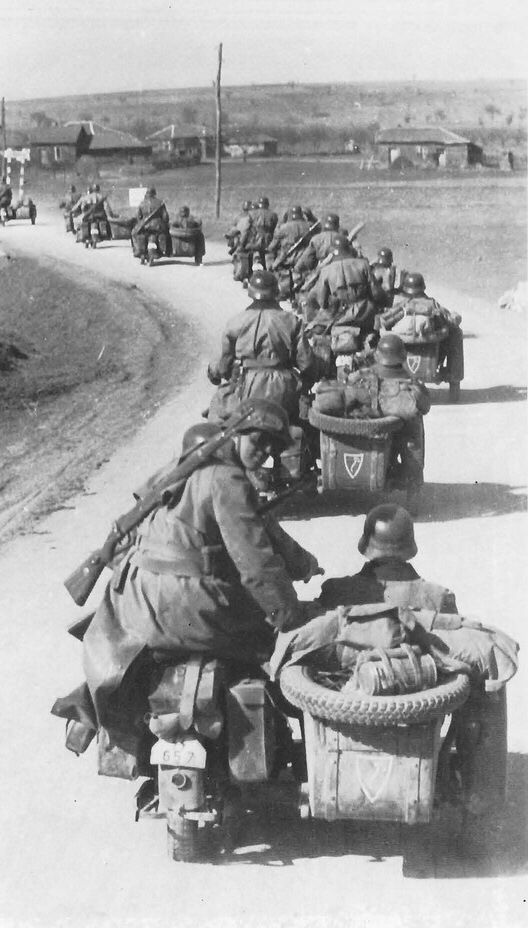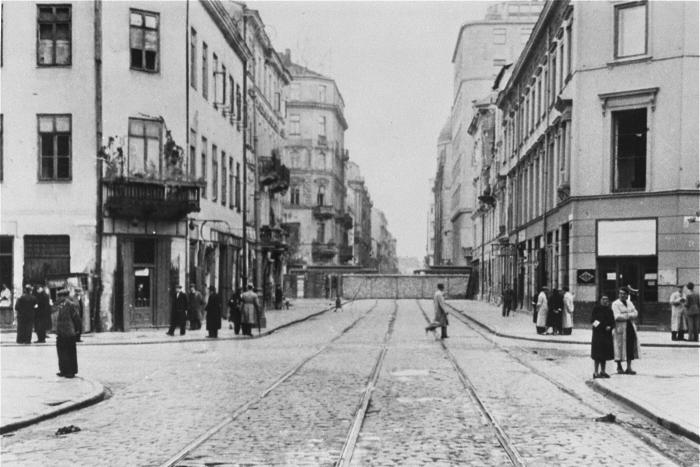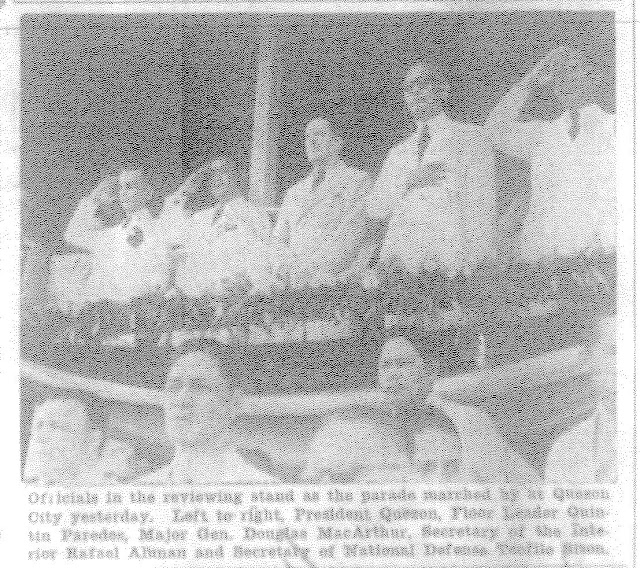Monday 7 April 1941
The XL Panzer Corps continues skidding across southern Yugoslavia at a lightning pace. Exactly when particular areas fall is difficult to ascertain, as the Germans are simply driving east as fast as they can. Today, the Germans pocket Prilep and the 9th Panzer Division moves on to regional center Skopje in Macedonia. Skopje is a major road junction from the Yugoslav coast to Greece, so this further isolates the bulk of the Yugoslav military and population to the north.
The Yugoslav Army counterattacks against the northern flank of the XL Panzer spearhead but fails to make any progress.
In the north, General Maximillian Baron von Weichs continues moving south with his 2nd Army. The Hungarians occupy territory north of the Danube that was lost in the treaties ending World War I.
Along the coast, the Italian 2nd Army under General Ambrosio makes a lunge south from the Trieste region. The Yugoslav 3rd Army attacks with five infantry divisions (13, 15, 25, 31 and 12 Divisions) in northern Albania west toward Elbasan, apparently to help the Greek Army conquer the Italians. This makes sense in the context of the Yugoslavs having watched the Italian/Greek conflict for months and contemplating how they could help the Greeks, and perhaps was a standing plan for the eventuality of hostilities with Italy. In the abstract, freeing the Greek forces to shift east would help the Allies to form a front there, but it assumes that the Yugoslavs can hold off the Germans while that plan plays out - a very risky bet.
The Luftwaffe continues pounding Belgrade in Operation Punishment. The Luftwaffe has complete command of the skies, but estimates of each side's losses during the battle vary widely and are completely unreliable. This is the climax of the Luftwaffe's attack on the capital. Estimates of Yugoslav casualties in Belgrade also vary widely and are completely unreliable, ranging from 1500 to 17,000, with the official figure 2,271.
Fires from yesterday's raid burn out of control, creating giant plumes of smoke and guiding follow-up raids to the city. The main targets hit today include the main railway station and a pontoon bridge across the Danube east of the city. The rail line is the major means of international communication from Belgrade, and XL Panzer Corps already has cut the mainline to Greece around Prilep. The Stukas also continue their work on the Yugoslav Air Force, which essentially has been missing in action, with many of its planes destroyed on the ground.
The Luftwaffe is having such an easy time that the fighters of 7,/JG 26, flying out of Taranto, return to their previous bases on Sicily. During this very brief operation over the Balkans, commander Oblt. Müncheberg scores a victory, a Yugoslav Fury biplane.
In Budapest, the government claims that the Yugoslav Air Force attacked three of its airfields and that its own forces shot down eight of the bombers. This is unconfirmed.
Croatian exile Ante Pavelic continues his broadcasts from Florence. He calls on Croats, who by and large are sympathetic to Germany, to resist the central government and set up their own state Naturally, Pavelic has some ideas on who might lead such an independent Croatian government.
 |
| New York Times, 7 April 1941. |
A simple glance at the map, however, shows that the panzers at Skopje are perfectly positioned to turn south and head toward Thessalonica (Thessaloniki). This would cut off the Greeks on the Bulgarian frontier and the British expeditionary force on the Aliakmon River line. Strategically, the German 12th Army under the command of Field Marshal Wilhelm List is best off by just keeping the Allied forces in place while they are enveloped to the west.
However, that does not mean that the Bulgarian/Greece front is quiet, and suggesting that does the men fighting there a huge disservice. Soldiers are fighting and dying there just like they are in Yugoslavia - in fact, given the ease of the German invasion of Yugoslavia, there may be more soldiers dying in Greece at any particular time. The Germans make progress on the western flank.
The people at the port of Piraeus continue picking up from the events of the 6th. Then, the harbor was rocked on the first day of the invasion when ammunition ship Clan Frazer blew up, sinking and damaging over a dozen ships. The dock facilities, which have been used to bring in British troops, are completely wrecked and the Royal Navy withdraws its remaining ships from the port to Suda Bay, Crete.
The Luftwaffe bombs and sinks 1012 Greek freighter Kyrapanagia off the port of Piraeus.
Greece severs diplomatic contact with Bulgaria and Hungary, while Great Britain breaks diplomatic relations with Hungary.
European Air Operations: The Luftwaffe remains active on the Channel Front despite the fact that numerous formations have been withdrawn to support Operation Marita. There are several different attacks that leave a lasting impression.
The Luftwaffe sends 179 bombers against Glasgow and 43 against Liverpool and Greenock. These attacks begin around 23:05.
A Heinkel He 111 equipped with X-Verfahren direction-finding equipment guides a small group of bombers from KG 54 and 55 to attack Bristol and Avonmouth after 21:00. A Beaufighter of RAF No. 219 Squadron shoots down a Heinkel from 1,/KG 55.
It is the first night of the "Belfast Blitz." This is not the first raid on Belfast, but it apparently is the first intentional bombing of the city. The Germans bomb the docks and also hit nearby residential areas. It is a small attack by half a dozen bombers and causes - by Blitz standards - only light damage, including destroying a factory used to manufacture fuselages for Short Stirling bombers. There are 13 deaths. The Luftwaffe loses a plane, but the pilots are delighted that the air raid defenses are relatively light.
During the day, the RAF conducts standard Rhubarb operations over France.
After dark, RAF Bomber Command, No. 2 Group, attacks the Kiel dock area, Cologne and Bremerhaven. The Kiel attack is the night's centerpiece, involving 229 bombers dropping 40,000 incendiaries and lasting for five hours. Kiel is easily accessible by the RAF bombers and receives poundings with great regularity - so far during the war, it has been attacked three dozen times. Despite that, the port remains fully functional. The RAF attack on Bremerhaven is much lighter, made by only 24 bombers.
East African Campaign: The South Africans consolidate their control over Addis Ababa. The Polizia dell'Africa Italiana (Police of Italian Africa) remain on patrol in the city with their approval. At Massawa, the British once again call on Italian Admiral Bonetti to surrender, but he refuses. The 7th Indian Infantry Brigade Group, 10th Indian Infantry Brigade, and a tank squadron prepare to assault the port on the 8th.
The Royal Navy is standing offshore bombarding Massawa in Operation Atmosphere, but Admiral Bonetti still has naval forces at his disposal. He sends Italian MAS 213 (torpedo boat) out after dark to shoo the British off. The Italians torpedo light South African cruiser HMSAS Capetown, badly damaging its stern and killing four sailors. The Capetown must be towed to Port Sudan, and later to Bombay. The repairs will take until July 1942.
Convoy BN 23 departs from Suez.
Battle of the Atlantic: Invasion fears are mounting. The Admiralty for some reason fears a major Luftwaffe raid on Scapa Flow in northern Scotland, so it orders the Home Fleet to sail. There is no air raid, and the ships return.
U-124 (Kptlt. Georg-Whilhelm Schulz) is operating around the Cape Verde Islands thanks to the good Kriegsmarine supply network which has kept it at sea there for the past month. It torpedoes 1746-ton Canadian freighter Portadoc, then surfaces and uses its deck gun to finish it off. The entire crew escapes in two lifeboats. They sail east and, in six days, make it to Benty, French Guinea - where the Vichy French intern them. The Portadoc was sailing as an independent.
German tanker Nordmark replenishes U-105 (Kapitänleutnant Georg Schewe) and U-106 (Kptlt. Jürgen Oesten) prior to their heading to Rio de Janeiro to escort a trapped German freighter, 3290-ton Lech, back to France.
The Luftwaffe bombs and sinks Royal Navy 258-ton minesweeping trawler Roche Bonne (Rochebonne) about eight miles southeast of the Lizard. Captain W.R. Settlefield and his ten sailors perish.
The Luftwaffe bombs and sinks 213-ton British trawler Sylvia southeast of the main Faroe Islands, east of Suðuroy. There is one death.
The Luftwaffe bombs and damages 3829-ton British freighter Kirnwood east of Clacton on Sea.
British 945-ton freighter Elisabeth hits a mine and sinks five miles (9 km) southeast of Portscatho. There are two deaths.
Convoy OB 307 departs from Liverpool.
Canadian minesweeper HMCS Cowichan (J 146) is commissioned.
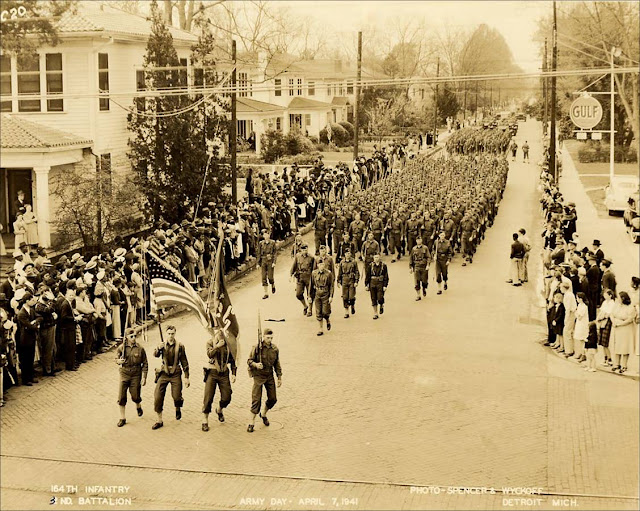 |
| Things are heating up in Alexandria, Egypt, but in Alexandria, Louisiana, the 3rd Battalion of the 164th Infantry Division marches for Army Day. 7 April 1941 (Dickinson Library). |
The Afrika Korps continues its rampage across Libya. The panzers effectively capture Derna, capturing the airfield and block the Via Balbia - the British position there now is hopeless. At Mechili, reached by the Germans on the 6th, the Afrika Korps twice demands that the remnants of the shattered British 2nd Armoured Division surrender, but the British hold out. Rommel orders his panzers forward (Group Olbrich) for an immediate attack. After a difficult march over harsh terrain, Group Olbrich is in position around Mechili as night falls, ready for a final attack on the 8th. General Rommel is upset at the delay, feeling the attack should have been conducted today. General Johannes Streich, the commander of the 5th Light Division (of which Group Olbrich is a part), claims among other things that yesterday's sandstorms clogged his panzers' turrets.
This battle presents a sort of an alternate reality to the majority of World War II. Throughout the conflict, the Allies, via their Ultra decryption service, read many German communications in real-time - in fact, there may be cases when the British read German messages before the intended German recipient does. However, with General Rommel leading from the front and ignoring orders from his supposed Italian commander, the British have very little spy intelligence to work with. On the other hand, the British are retreating in a pell-mell fashion that approaches raw panic. As they go, they are sending radio messages in the clear and on the fly to headquarters identifying their positions - which the Wehrmacht's intelligence service is reading and forwarding to Rommel.
General Erwin Rommel continues flying in his personal Fieseler Storch observation plane above the battlefield. By doing this, he sees not only where the British forces are, but also exactly where his own forces are - which is a lot more than the British commanders know. The Luftwaffe also helps out, reporting that large British forces are concentrating around Gazala, now the westernmost tip of British control. Luftwaffe transport planes work overtime bringing in supplies to the forces investing Mechili. Supply is a major developing problem for the Wehrmacht, with some troops without rations for four days now - a consequence of unexpected success.
The Germans and Italians spirit Generals O'Connor and Neame, captured on the 6th, out of Libya to imprisonment in Italy.
At Malta, supplies continue to tighten. Food rationing is introduced.
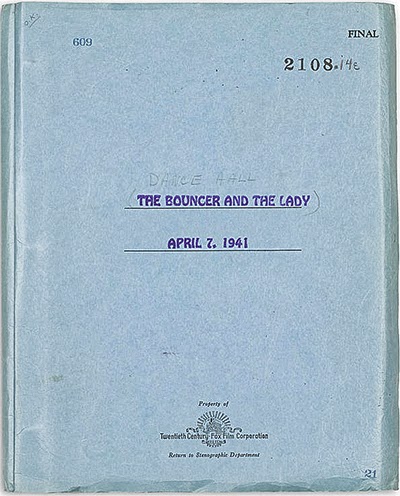 |
| William Faulkner's final screenplay of Twentieth Century Fox's "The Bouncer and the Lady," dated 7 April 1941. |
British Military: General Bernard Law Montgomery, aka "Monty," is appointed commander of XII Corps. This is a key command, responsible for the Kent/Sussex sector in southeast England. With invasion fears running wild as spring approaches, this is a key vote of confidence. Montgomery immediately institutes a training program for all ranks and begins sacking officers he believes are incompetent.
The Gloster E.28/39 (Meteor) prototype is delivered to Brockworth airfield for ground (taxiing) tests. This version does not include a fully working jet, the key component of any jet fighter, but the engine provided can power the aircraft sufficiently to make short hops off the ground. A Power Jets W.1 engine is just about ready for delivery to the airfield for full flight tests.
US Military: The US sends a force, TG 7.2, from New York Navy Yard to establish Naval Station Bermuda under the command of Captain Jules James, USN. TG 7.2 includes aircraft carrier USS Ranger (CV-4) and heavy cruisers Tuscaloosa and Wichita, which will stay and make Bermuda their home port. This relatively small force will be greatly augmented by large US naval forces. This is one of the bases ceded by the British to the US pursuant to the destroyers-for-bases deal of September 1940.
Iraq: The British forces at Habbaniyah are growing increasingly worried about the change in government from a pro-British to pro-Axis orientation. Whitehall telegrams Middle East Commander General Archibald Wavell asking him what troops he can spare for Iraq. Wavell responds that, given operations in both Libya and Greece, all that he can spare is a battalion.
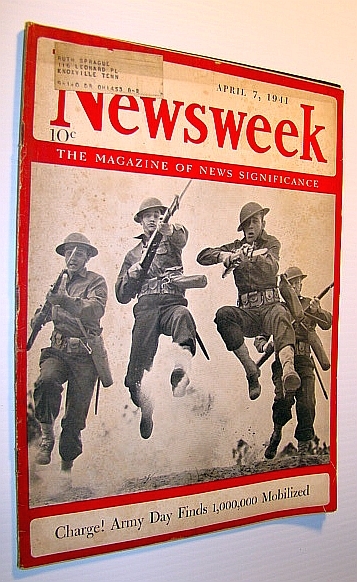 |
| Newsweek Magazine, 7 April 1941. |
…these border imbroglios are mere secondary questions. We can’t worry too much over such trivialities. As the international situation improves, they will automatically be settled. Let's wait at least until we get a definite assurance from England and the United States before we clamp down on the Communists.
French Homefront: Vichy French leader Petain makes a radio broadcast demanding complete obedience from the French people.
American Homefront: The Gallup opinion research firm publishes the results of a poll. The question posed is:
Which of these two things do you think it is more important for the United States to try to do — to keep out of the war ourselves, or to help England win, even at the risk of getting into the war?Of the respondents, 67% prefer to help England win. This is a 7% increase from a similar question asked in January 1941.
 |
| Life Magazine, 7 April 1941, "Spring Showers." |
April 1, 1941: Rommel Takes Brega
April 2, 1941:Rommel Takes Agedabia
April 3, 1941: Convoy SC-26 Destruction
April 4, 1941: Rommel Takes Benghazi
April 5, 1941: Rommel Rolling
April 6, 1941: Operation Marita
April 7, 1941: Rommel Takes Derna
April 8, 1941: Yugoslavia Crumbling
April 9, 1941: Thessaloniki Falls
April 10, 1941: USS Niblack Attacks
April 11, 1941: Good Friday Raid
April 12, 1941: Belgrade and Bardia Fall
April 13, 1941: Soviet-Japanese Pact
April 14, 1941: King Peter Leaves
April 15, 1941: Flying Tigers
April 16, 1941: Battle of Platamon
April 17, 1941: Yugoslavia Gone
April 18, 1941: Me 262 First Flight
April 19, 1941: London Smashed
April 20, 1941: Hitler's Best Birthday
April 21, 1941: Greek Army Surrenders
April 22, 1941: Pancevo Massacre
April 23, 1941: CAM Ships
April 24, 1941: Battle of Thermopylae
April 25, 1941: Operation Demon
April 26, 1941: Operation Hannibal
April 27, 1941: Athens Falls
April 28, 1941: Hitler Firm about Barbarossa
April 29, 1941: Mainland Greece Falls
April 30, 1941: Rommel Attacks
2020
